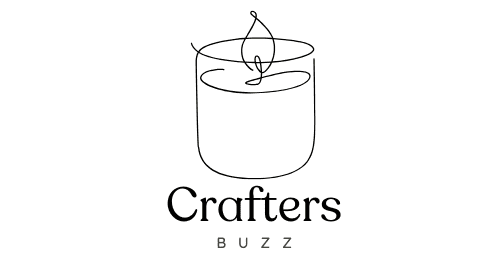Why sourcing ethical, sustainable materials is crucial for eco-friendly candle production.
Traditional candle production often involves the use of paraffin wax, a byproduct of petroleum refining. The extraction and processing of petroleum not only contribute to greenhouse gas emissions but also lead to significant environmental degradation. The entire lifecycle of paraffin candles—from extraction to production and eventual disposal—poses a threat to ecosystems.
When burned, paraffin candles release volatile organic compounds (VOCs) and other harmful substances into the air, contributing to indoor air pollution. This is particularly concerning for individuals with respiratory issues or sensitivities, as these emissions can exacerbate health problems. Moreover, the production process of traditional candles can be resource-intensive.
The energy required for manufacturing, coupled with the transportation of raw materials, adds to the carbon footprint associated with these products. Additionally, many traditional candles are adorned with synthetic fragrances and dyes, which can further complicate their environmental impact. These additives not only contribute to pollution during production but can also release harmful chemicals when burned.
As consumers become more aware of these issues, the demand for more sustainable alternatives has grown, prompting a reevaluation of traditional practices in the candle industry.
Key Takeaways
- Traditional candle production can have a negative environmental impact due to the use of non-renewable resources and the release of harmful emissions.
- Ethical sourcing in the candle industry is crucial for ensuring fair treatment of workers and supporting local communities.
- Using sustainable materials in candle production can reduce the industry’s carbon footprint and minimize waste.
- Ethical sourcing and eco-friendly practices are interconnected, as ethical sourcing often leads to more sustainable production methods.
- Consumer demand plays a significant role in driving the adoption of ethical and sustainable practices in the candle industry.
The importance of ethical sourcing in the candle industry
Ethical sourcing in the candle industry is crucial for ensuring that the materials used in production are obtained in a manner that respects both people and the planet. This involves considering the entire supply chain, from the raw materials to the labor practices involved in their extraction and processing. For instance, sourcing beeswax from beekeepers who prioritize sustainable practices not only supports local economies but also promotes biodiversity by ensuring healthy bee populations.
Ethical sourcing also encompasses fair labor practices, ensuring that workers are compensated fairly and work in safe conditions. The significance of ethical sourcing extends beyond just the materials themselves; it also reflects a brand’s commitment to social responsibility. Consumers are increasingly seeking transparency in the products they purchase, and brands that prioritize ethical sourcing can differentiate themselves in a crowded market.
By choosing suppliers who adhere to ethical standards, candle producers can foster a sense of trust and loyalty among their customers. This commitment to ethical practices can also lead to positive ripple effects within communities, as responsible sourcing often supports local artisans and small businesses.
The benefits of using sustainable materials in candle production
Utilizing sustainable materials in candle production offers numerous advantages that extend beyond environmental considerations. For instance, soy wax, a popular alternative to paraffin, is derived from soybeans, a renewable resource. Unlike paraffin, which is non-biodegradable and contributes to pollution, soy wax is biodegradable and burns cleaner, producing less soot and fewer harmful emissions.
This shift not only benefits consumers’ health but also reduces the overall environmental impact associated with candle burning. In addition to soy wax, other sustainable materials such as coconut wax and beeswax provide unique benefits. Coconut wax, for example, has a lower melting point than traditional waxes, allowing for longer burn times and better scent throw.
Beeswax is known for its natural air-purifying properties, as it releases negative ions when burned, which can help neutralize indoor pollutants. By incorporating these sustainable materials into their products, candle manufacturers can appeal to environmentally conscious consumers while also enhancing the quality and performance of their candles.
The connection between ethical sourcing and eco-friendly practices
The relationship between ethical sourcing and eco-friendly practices is inherently intertwined. When companies commit to ethical sourcing, they often prioritize environmentally friendly methods of production as well. For example, sourcing palm wax from suppliers who engage in sustainable farming practices helps mitigate deforestation and habitat destruction associated with conventional palm oil production.
This not only protects biodiversity but also supports communities that rely on these ecosystems for their livelihoods. Furthermore, ethical sourcing encourages transparency throughout the supply chain, allowing consumers to make informed choices about the products they purchase. Brands that prioritize eco-friendly practices often share information about their sourcing methods, production processes, and environmental impact.
This transparency fosters a culture of accountability within the industry and encourages other companies to adopt similar practices. As more brands embrace ethical sourcing and eco-friendly methods, the collective impact can lead to significant positive changes within the industry as a whole.
The role of consumer demand in driving ethical and sustainable practices
Consumer demand plays a pivotal role in shaping the practices of industries across the globe, including the candle sector. As awareness of environmental issues grows, consumers are increasingly seeking products that align with their values—namely those that are ethically sourced and sustainably produced. This shift in consumer behavior has prompted many candle manufacturers to reevaluate their sourcing methods and production processes in order to meet this demand.
The rise of social media and online platforms has further amplified consumer voices, allowing individuals to share their preferences for sustainable products widely. Brands that fail to adapt to this changing landscape risk losing market share to competitors who prioritize ethical practices. Consequently, many companies are now investing in sustainable materials and transparent supply chains as a direct response to consumer demand.
This dynamic relationship between consumers and producers highlights the power of informed purchasing decisions in driving positive change within industries.
The impact of unethical sourcing on local communities and ecosystems
Unethical sourcing practices can have devastating effects on local communities and ecosystems alike. In many cases, the extraction of raw materials occurs at the expense of indigenous populations who rely on these resources for their livelihoods. For instance, unsustainable harvesting of natural resources can lead to habitat destruction, loss of biodiversity, and displacement of local communities.
This not only disrupts traditional ways of life but also exacerbates poverty and inequality. Moreover, unethical sourcing often involves exploitative labor practices, where workers are subjected to poor working conditions and inadequate compensation. In some regions, child labor is prevalent in industries tied to raw material extraction, raising serious ethical concerns about the products being consumed.
The consequences extend beyond individual communities; they can destabilize entire regions by undermining social structures and contributing to environmental degradation. Addressing these issues through ethical sourcing is essential for fostering sustainable development and protecting vulnerable populations.
The potential for positive change through ethical and sustainable sourcing
The potential for positive change through ethical and sustainable sourcing is immense. By prioritizing responsible practices, companies can contribute to environmental conservation while simultaneously supporting local economies and communities. For example, brands that source materials from fair trade suppliers not only ensure that workers receive fair wages but also promote sustainable agricultural practices that protect ecosystems.
Additionally, as more companies adopt ethical sourcing policies, they create a ripple effect throughout their industries. Competitors may feel pressured to follow suit in order to remain relevant in an increasingly conscientious market. This collective movement towards sustainability can lead to significant reductions in carbon footprints and improved social conditions for workers across various sectors.
The transition towards ethical sourcing is not merely a trend; it represents a fundamental shift in how businesses operate and engage with their stakeholders.
How to identify and support eco-friendly candle producers
Identifying and supporting eco-friendly candle producers requires a discerning approach as consumers navigate an increasingly crowded marketplace. One effective strategy is to look for certifications that indicate sustainable practices, such as Fair Trade or USDA Organic labels. These certifications provide assurance that the products meet specific environmental and social standards.
Additionally, researching brands’ transparency regarding their sourcing methods can offer valuable insights into their commitment to sustainability. Many eco-friendly producers share information about their supply chains on their websites or through social media platforms. Engaging with brands directly by asking questions about their materials and production processes can also help consumers make informed choices.
Supporting local artisans who prioritize sustainable practices is another way to contribute positively to the candle industry. Many small-scale producers focus on ethical sourcing and environmentally friendly materials while fostering community connections through their work. By choosing to purchase from these artisans rather than mass-produced options, consumers can help promote a more sustainable future for the candle industry while enjoying unique products crafted with care.
In conclusion, understanding the complexities surrounding candle production—from environmental impacts to ethical sourcing—empowers consumers to make informed choices that align with their values. By prioritizing sustainability and supporting responsible producers, individuals can contribute to a more equitable and environmentally friendly marketplace.
Sourcing ethical, sustainable materials is crucial for eco-friendly candle production, as highlighted in a recent article on Crafters Buzz. The article discusses the importance of using environmentally friendly materials in candle making to reduce the industry’s impact on the planet. For further insights into the history of candle production and the decline in the 20th century, check out the article “Flicker of the Past: Candle Decline in 20th Century”.
FAQs
What are ethical, sustainable materials?
Ethical, sustainable materials are materials that are sourced and produced in a way that minimizes negative impact on the environment and ensures fair treatment of workers throughout the supply chain.
Why is sourcing ethical, sustainable materials crucial for eco-friendly candle production?
Sourcing ethical, sustainable materials is crucial for eco-friendly candle production because it reduces the environmental impact of the production process and supports fair labor practices. It also aligns with the values of environmentally conscious consumers.
What are some examples of ethical, sustainable materials for candle production?
Examples of ethical, sustainable materials for candle production include soy wax, beeswax from responsibly managed hives, and essential oils from sustainable sources.
How does sourcing ethical, sustainable materials benefit the environment?
Sourcing ethical, sustainable materials benefits the environment by reducing deforestation, minimizing chemical pollution, and conserving natural resources. It also supports biodiversity and reduces greenhouse gas emissions.
What are the challenges in sourcing ethical, sustainable materials for candle production?
Challenges in sourcing ethical, sustainable materials for candle production include limited availability, higher costs, and the need for transparency and certification to ensure the materials meet ethical and sustainable standards.










